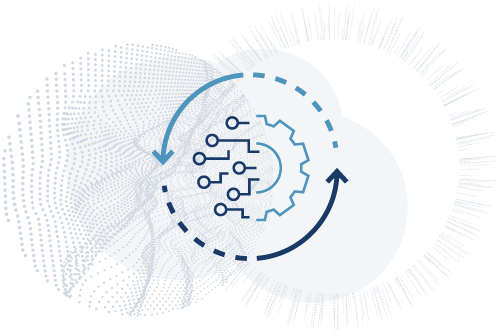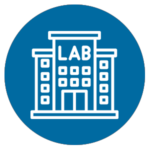Digital Innovation for Net-Zero Buildings
![]()
This work was made possible by the generous support of the RBC Foundation


![]()
This work was made possible by the generous support of the RBC Foundation
Energy as it pertains to buildings (in the forms of electricity and heating) represents a significant pathway to reach net-zero targets, accounting for 18% of Canada’s CO2 emissions. But according to a recent report, Alberta lags other jurisdictions in terms of energy efficiency policies and initiatives. Digital technology can play an important role in identifying and addressing these challenges and many technologies exist. Our challenge is not necessarily about technological innovation but rather about increasing the application of existing technology (a non-technical challenge).
In recent years, the Lab has been exploring different intersections of digital innovation and energy transition with over 200 thought leaders across sectors and fostering collaboration to unlock the potential of digital technology to move Alberta towards a low-carbon future. This area is dynamic where new opportunities emerge, including where the Lab is positioned to add value. In a recent review of past work in this area, engagement with the Lab’s current Fellows and through a series of interviews conducted the following convening question was identified for this work across 2022 and 2023:
Starting in 2022, the Lab convened a multi-stakeholder cohort of over 30 committed leaders representing utilities, regulatory bodies, technology and data experts, governmental agencies, entrepreneurs and building specialists to address this question. Together they explored the complexity of this issue and identified four key areas of innovation for creative solutioning: equity, data, policy and business case.
The final phase of this innovation challenge focused on clarifying and testing high-potential, participant-led solutions that addressed the convening question, responded to the key innovation areas and that the group felt compelled to champion. From a long list of potential solutions, three solutions were prioritized and were progressed together with a group of leaders.
 |
Match-Making for City of Calgary Living Labs ProgramThis solution aims to identify an aligned candidate technology or system that helps meet needs the City has in working towards its net-zero targets and that has a high probability to be accepted into the City of Calgary’s Living Labs program. The Living Labs program aims to simplify the process of making public spaces, transportation corridors and land owned or under the jurisdiction of the City more accessible for the research and testing of innovative solutions. The group is currently working towards mobilizing an inspiring digital technology application to the City of Calgary Living Labs program that moves it towards net-zero buildings. |
 |
A Decarbonizing Exchange for Commercial Building PractitionersThe buildings sector is a significant contributor to global emissions. Building owners and operators may have employees that do technology, data and/or decarbonization work but more resources and attention are needed to match the scale and urgency of net-zero targets. Creating a roadmap/plan for specific buildings is critical despite its resource intensity and especially for building owners and operators without a dedicated energy manager. This solution aims to leverage commercial building relationships and expertise to help building owners and operators share data and learning from previous projects (e.g. by creating building-level roadmaps) to accelerate decarbonization in buildings. |
 |
Data & Revealing Equity NeedsLeaders and decision-makers often create solutions for moving towards net-zero buildings that aren’t inclusive to all and might even create negative consequences for marginalized communities. This solution aims to bring together a group of stakeholders to share perspectives, discuss the complexities and work towards a DRAFT framework to collect and use data to better understand the scale and impact of the net-zero building needs/opportunities for marginalized communities in order to propose more inclusive and equitable solutions. |
This Innovation Challenge has now wrapped up and is not currently accepting new participants. If you are interested in learning more about our past work, please reach out to info@energyfutureslab.com.